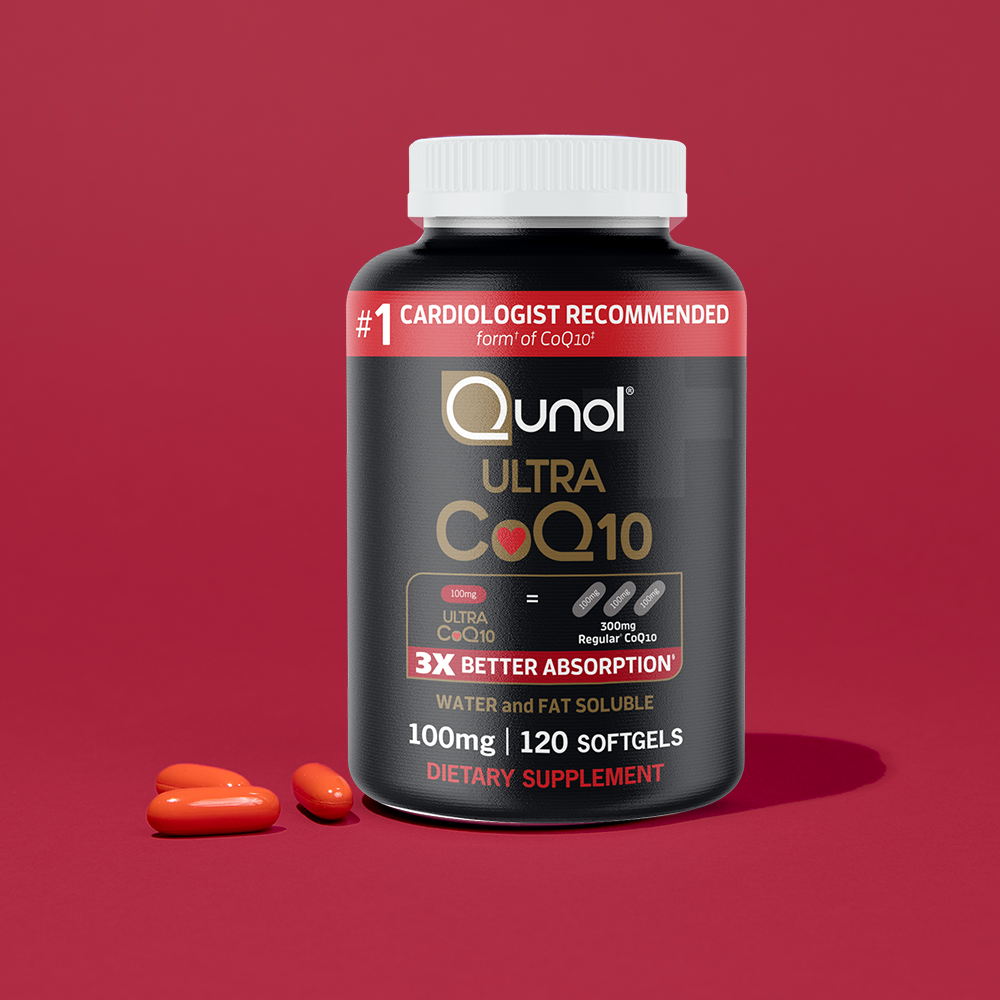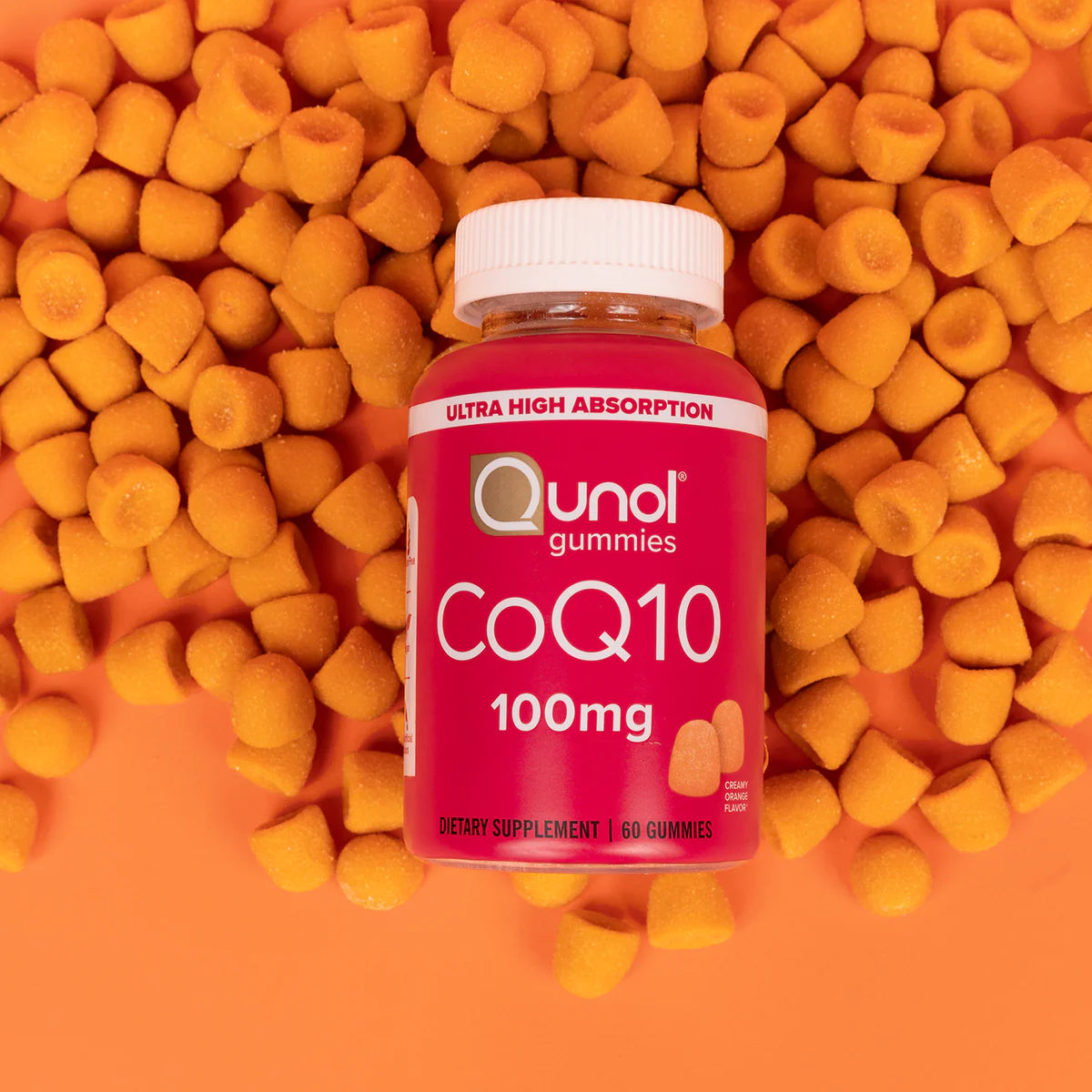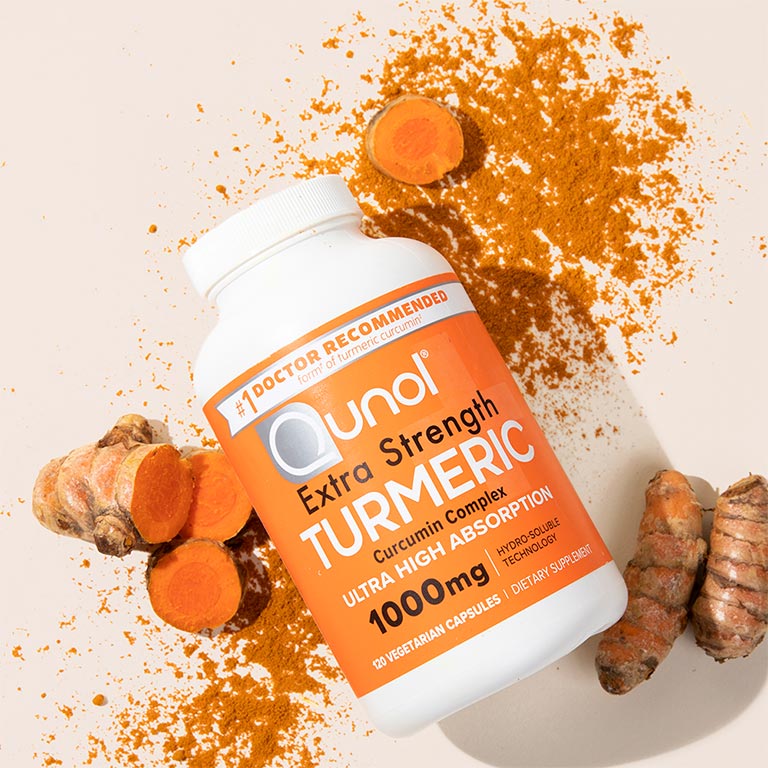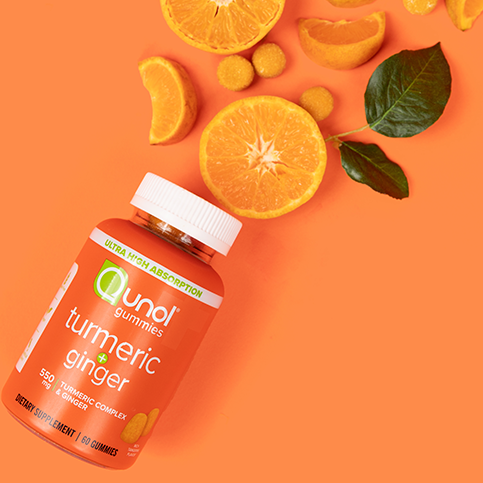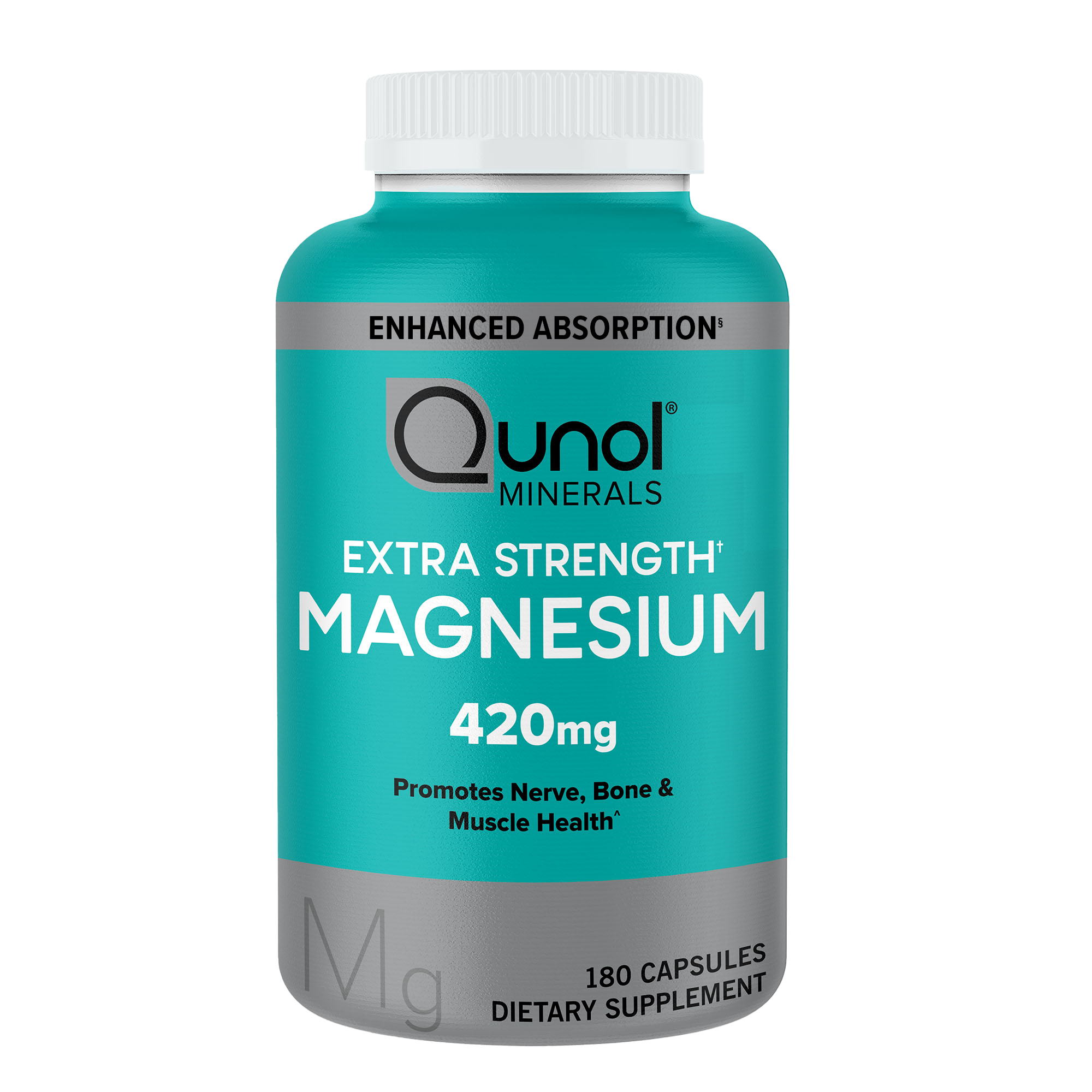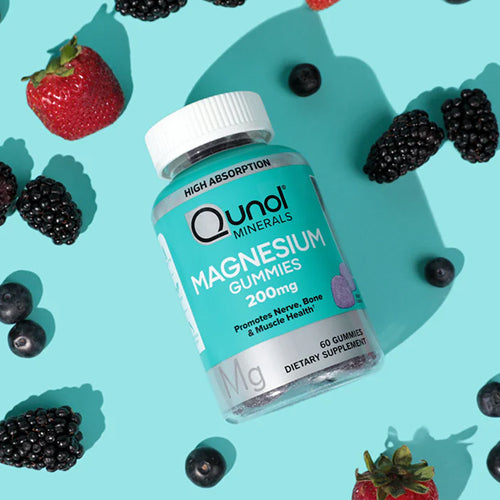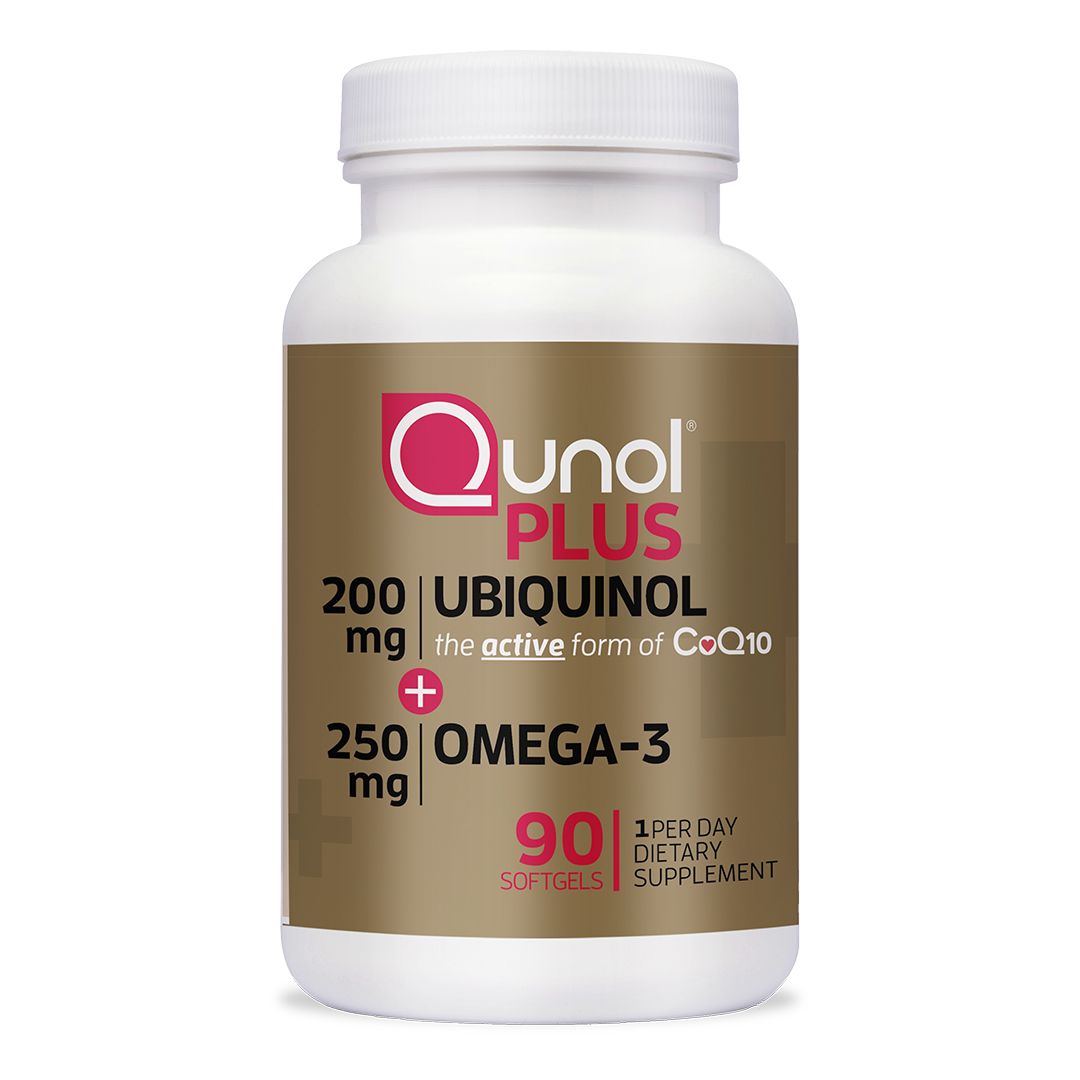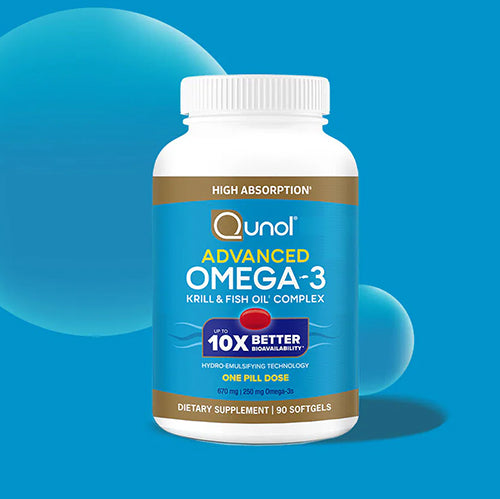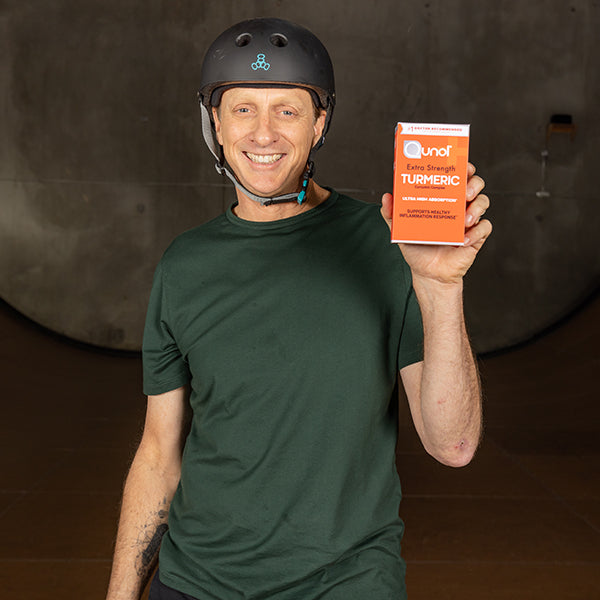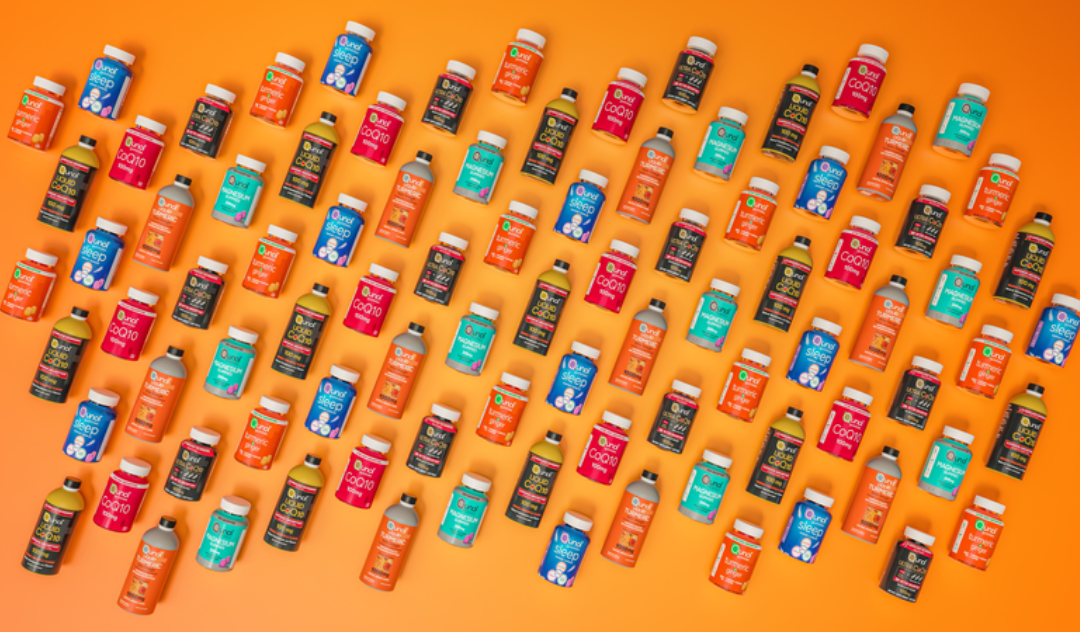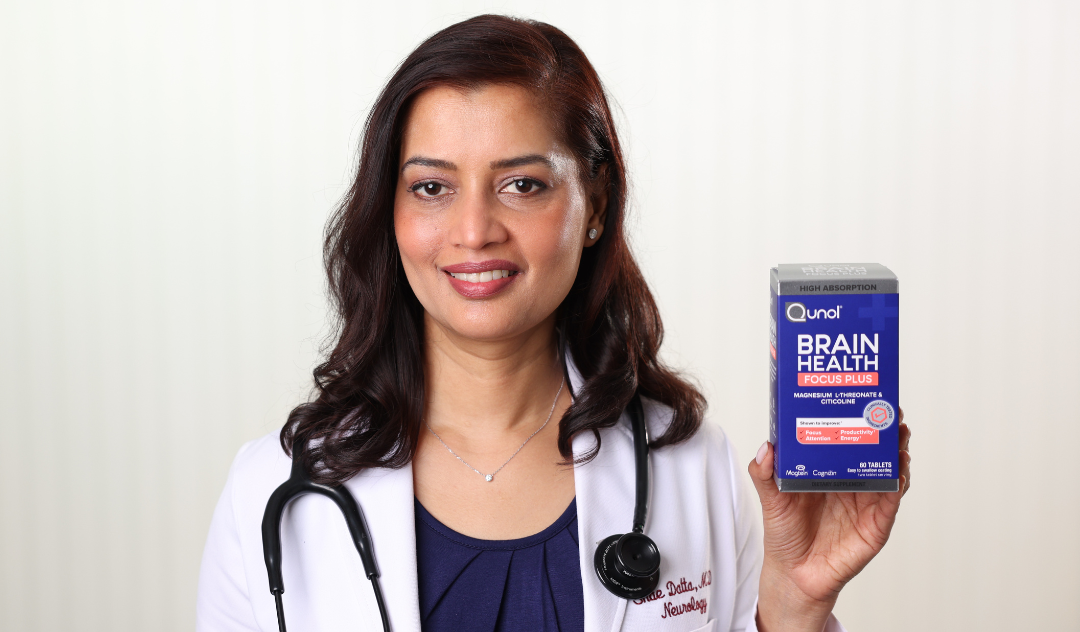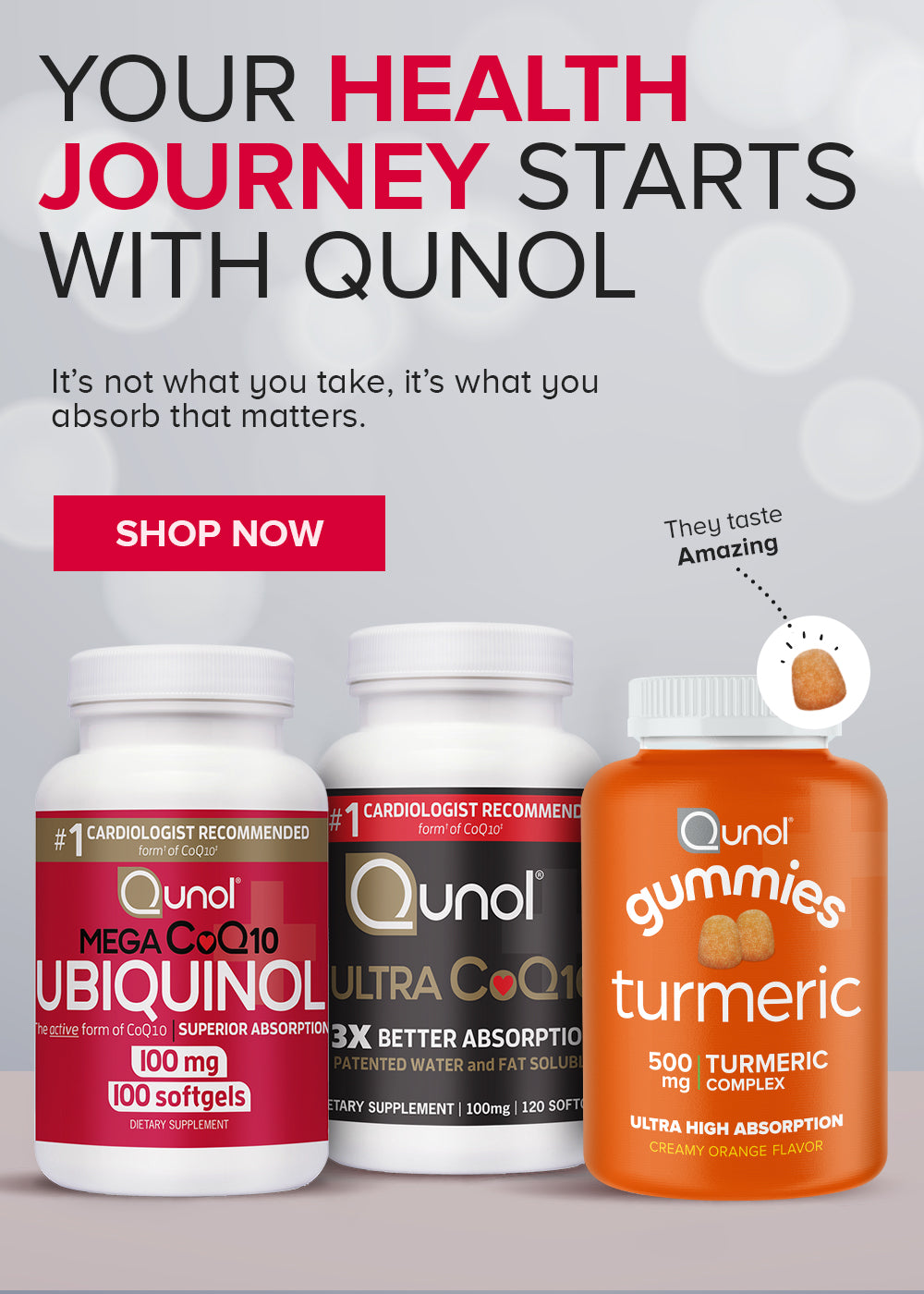Key Takeaways
-
Nuts and seeds, red grapes, whole grains, and olive oil are some of the best foods to support memory, focus, and overall brain health.
-
These nutrient-rich foods provide key compounds like omega-3s, antioxidants, B vitamins, and healthy fats — all of which help protect brain cells and support cognitive function.
-
A balanced diet combined with brain-supporting supplements like those from Qunol can help you stay sharp, focused, and energized throughout the day.
We are all aware that when we nourish our bodies in a healthy way, we also tend to feel healthy. Let's be clear — "healthy" is a broad term that can mean different things to different people. Today, we're focusing specifically on foods that support memory and focus — as well as a few that may do both.
Each food in this guide could support your brain health in unique ways, providing a wide range of potential benefits. The best part is that, despite the stereotype of healthy food being unappetizing, there’s a cornucopia of delectable foods that help support memory and focus to choose from.
Hungry for some brain food now? Let’s check the menu.
Nuts and Seeds
If you’re looking to ditch chips for healthier grab-and-go grub, you can’t do much better than nuts and seeds. Whether you prefer them as part of a trail mix, stirred into yogurt or by themselves, these bite-sized, protein-rich snacks come with a bevy of potential cognitive benefits.
Almonds, for instance, are an excellent source of vitamin E, which supports brain health as you age.1 Roasted or raw, sunflower and pumpkin seeds can support your memory performance.2
Among other things, walnuts excel at providing alpha-linolenic acid, an omega-3 fatty acid that may help reduce brain inflammation. This fatty acid makes walnuts the nut type most promising for cognitive health.3
Red Wine and Grapes
Since red grapes are among the foods that could support memory, their brain-related benefits may extend to red wine as well—something to think about the next time you’re pouring a glass of Cabernet or Malbec.
What exactly can one glass a day do for you? Here are some of the potential benefits of red wine (and red grapes) observed in prior studies:
-
Resveratrol, an antioxidant present in red wine/grapes, could improve blood flow to the brain.4
-
Compounds in red grapes and red wine may help reduce brain inflammation.5
-
The brain’s glymphatic system, a sort of biological waste disposal that flushes toxins (including those that could impact memory), works better under low alcohol levels—avoid or limit alcohol intake.5
Whole Grains
We’re taught at a young age that grains are one of the main food groups, and whole grains—those not refined, processed or enriched in any way6—are the most important of all. Some common examples include:
-
Whole wheat bread/pasta
-
Brown rice
-
Oatmeal
-
Popcorn
These and other whole grains boast a number of potential benefits for your memory and focus. And since you usually eat grains with other food, you can easily get those benefits while enjoying a scrumptious sandwich or flavorful rice bowl. However you choose to eat them, whole grains are renowned for the energy they provide, sustained energy supports concentration, attention, and more.7
They’re also chock-full of B vitamins, from folate (B6) to riboflavin (B12). In terms of brain health, B vitamins help produce neurotransmitters related to memory. Brown rice is a source of the amino acid tryptophan which is converted to the neurotransmitter serotonin.7
Olive Oil
Like whole grains, olive oil is best savored with other foods. Whatever you drizzle it on, it provides its own unique set of benefits.
Extra-virgin olive oil is worth a taste, too. Because it isn’t processed to the same extent as regular olive oil, extra-virgin retains higher levels of health-promoting compounds, such as phenols.10
More Healthy Food, More Healthy Options
Let’s fill out the cornucopia with other foods for focus and memory you can enjoy.
-
Fatty fish (salmon, cod, pollock) – Seafood rich in omega-3 fatty acids may support offer neuroprotective benefits.11
-
Dark leafy greens (kale, spinach, broccoli, arugula) – These veggies supply folate, which can support brain development,12 and vitamin E to help prevent oxidative stress.13
-
Avocados – Another source of vitamin E, these fruits also provide monounsaturated fats that may improve blood flow to the brain.14
-
Eggs – Scrambled or over-easy, eggs are packed with choline: a compound that can support brain function and memory.15 Eggs support neurotransmitter production as well, which may support focus and learning ability.16
-
Dark berries (e.g., blueberries) – Tiny but filled with antioxidants that could protect brain cells from damage, dark berries may also strengthen neural communication over time.17
-
Beans and legumes – Known for their omega-3 fatty acids and fiber content, beans and legumes are also a delicious source of B vitamins; B vitamins may help convert homocysteine (an amino acid) into essential brain compounds.18
-
Dark chocolate (with 70% or more cacao) – The flavonoids and antioxidants in this not-too-sweet treat may support cognitive function. Dark chocolate may also help improve blood flow to the brain and enhance mental clarity.19
-
Green tea (hot or cold, no added sugars) – This relaxing drink contains compounds that could improve brain function and focus as well as antioxidants that protect against free radical damage.20
-
Tomatoes – Tomatoes are high in lycopene, an antioxidant that may play a role in inflammation and support brain health.21
-
Beets – This nitrate-rich root vegetable could support cognitive function and reduce brain fog. It may also help enhance blood flow to the brain.22
-
Soy products – From edamame to tofu, soy products may help support memory functions as you age. The polyphenols and antioxidants they contain could also boost cognitive function.23
The Role of Qunol in Supporting Brain Health
Now that you’ve seen some of the benefits of healthy eating, you can level up your game with Qunol and our variety of science-backed supplements.
Take our Omega-3 Mini Fish Oil Pills for instance, which have fatty acids to support your wellness goals. Or our Memory Plus and Focus Plus supplements, which promote key components of mental clarity, like memory, focus, and attention.*
Whatever you choose, Qunol is here to help supplement your brain health needs. Buy brain health supplements online from Qunol today, and help support your health goals.
Sources:
1. AARP. 6 Nuts and Seeds That Can Give Your Brain a Boost. https://www.aarp.org/health/healthy-living/info-2025/nuts-and-seeds-for-brain-health.html
“Almonds are by far the most potent source of vitamin E among all the nuts. Low intake of vitamin E has been linked to an increase in dementia risk.”
2. Current Research in Nutrition and Food Science Journal. The Effects of Black Mulberry Fruit Extract, Sunflower Seed, and Pumpkin Seed with Exercise on Memory Function and Neural Activation Biomarkers among Healthy Young Adults. https://www.foodandnutritionjournal.org/volume8number1/the-effects-of-black-mulberry-fruit-extract-sunflower-seed-and-pumpkin-seed-with-exercise-on-memory-function-and-neural-activation-biomarkers-among-healthy-young-adults/
3. PubMed® National Library of Medicine.Impact of Nut Consumption on Cognition across the Lifespan. https://pmc.ncbi.nlm.nih.gov/articles/PMC9965316/
4. PubMed® National Library of Medicine. Significance of wine and resveratrol in cardiovascular disease: French paradox revisited. https://pmc.ncbi.nlm.nih.gov/articles/PMC2276147/
5. University of Rochester Medical Center. In Wine, There’s Health: Low Levels of Alcohol Good for the Brain. https://www.urmc.rochester.edu/news/story/in-wine-theres-health-low-levels-of-alcohol-good-for-the-brain
6. My Plate | USDA. Grains. https://www.myplate.gov/eat-healthy/grains
7. PubMed® National Library of Medicine. The Relationship between Whole-Grain Intake and Measures of Cognitive Decline, Mood, and Anxiety—A Systematic Review. https://pmc.ncbi.nlm.nih.gov/articles/PMC10334137/
8. Harvard Health Publishing. Olive oil: Can it lower your risk of dying early? https://www.health.harvard.edu/blog/olive-oil-can-it-lower-your-risk-of-dying-early-202203012695
9. Harvard Health Publishing. Is extra-virgin olive oil extra healthy? https://www.health.harvard.edu/nutrition/is-extra-virgin-olive-oil-extra-healthy
10. PubMed® National Library of Medicine. Structure Properties, Acquisition Protocols, and Biological Activities of Oleuropein Aglycone. https://pmc.ncbi.nlm.nih.gov/articles/PMC6099103/
11. Cureus. Effects of Omega-3 Polyunsaturated Fatty Acids on Brain Functions: A Systematic Review. https://pmc.ncbi.nlm.nih.gov/articles/PMC9641984/
12. Metabolites. The Impact of Maternal Folates on Brain Development and Function After Birth. https://pmc.ncbi.nlm.nih.gov/articles/PMC9503684/
13. Medline Plus. Antioxidants. https://medlineplus.gov/antioxidants.html
14. Frontiers in Nutrition. US Older Adults That Consume Avocado or Guacamole Have Better Cognition Than Non-consumers: National Health and Nutrition Examination Survey 2011–2014. https://pmc.ncbi.nlm.nih.gov/articles/PMC8551489/
15. National Institutes of Health. Choline. https://ods.od.nih.gov/factsheets/Choline-HealthProfessional/
16. Nutricion Hospitalaria. Egg Components Involved in Cognitive Function. https://pubmed.ncbi.nlm.nih.gov/39279756/
17. Neural Regeneration Research. Neuroprotective Effects of Berry Fruits on Neurodegenerative Diseases. https://pmc.ncbi.nlm.nih.gov/articles/PMC4192974/
18. Nutrition Reviews. B vitamins and prevention of cognitive decline and incident dementia: a systematic review and meta-analysis. https://pubmed.ncbi.nlm.nih.gov/34432056/
19. Heliyon. The effects of dark chocolate on cognitive performance during cognitively demanding tasks: A randomized, single-blinded, crossover, dose-comparison study. https://pmc.ncbi.nlm.nih.gov/articles/PMC10803911/
20. Current Neuropharmacology. Green Tea, A Medicinal Food with Promising Neurological Benefits. https://pmc.ncbi.nlm.nih.gov/articles/PMC8033961/
21. Journal of Nutritional Science. Lycopene and Cognitive Function. https://pmc.ncbi.nlm.nih.gov/articles/PMC6558668/
22. International Journal of Environmental Research and Public Health. Effects of Beetroot Juice Supplementation on Cognitive Function, Aerobic and Anaerobic Performances of Trained Male Taekwondo Athletes: A Pilot Study. https://pmc.ncbi.nlm.nih.gov/articles/PMC8507686/
23. Nutrition Reviews. Effects of soy isoflavones on cognitive function: a systematic review and meta-analysis of randomized controlled trials. https://pmc.ncbi.nlm.nih.gov/articles/PMC7808187/

